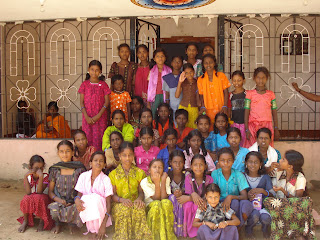
Since the last time my family and I traveled to India in 1998, three things remain exactly the same. Motorcycles take over the streets as many people’s main form of transportation, constantly weaving their way through the overcrowded streets of Chennai and Mumbai. Mangoes are to be found in most any village, at every dinner table, regardless of the time of day. Chai and all its aroma are omnipresent at nearly every train station throughout all of India, often overpowering the ghastly smells of the nearby sewers.
I am writing about these three aspects of Indian culture for two particular reasons. With a gap of over ten years between now and my last time in India, these three things serve as an unshaken foundation of familiarity. When I find myself alone on a seven hour train ride from the LAFTI offices to my aunt’s house (a trip I have taken nearly every five days since my arrival), the smell of tongue-burning chai is actually refreshing. Watching the chai sellers cool a cup of this tea by pouring it between two different cups nearly four feet apart reminds me of why I loved the stopping part of each train ride so very much. Being a picky eater and someone who has never liked even the least bit of Indian spice, eating mangoes now reminds me of my childhood survival food when it came to the common curries and chutneys served almost every morning and night. Seeing motorcycles going in every direction at speeds not appropriate for discussion, I am constantly reminded of the thrill and risk I love so greatly when it comes to traveling.
While these three characteristics of Indian life sing a beautiful song of familiarity that is most comforting from dawn until dusk, they also possess a greater and much deeper meaning than is revealed in everyday life. While it may occur possibility only in my own imagination, motorcycles, mangoes, and chai seem to represent three of the most fundamental elements of human life. Motorcycles, as one of many modes of transport represent our ability as individuals to move from place to place. Whether it is by horse and cart, in a train or in a car, or via motorbike managing the overcrowded dirt roads of southeastern India, we move. Mangoes symbolize survival. Survival not just for me as an 8-year-old child who wouldn’t eat anything else but these scrumptious green and orange ovals, but for anyone and everyone who is living today. Hand-picking our fruits from a tree, cutting our meats with a machete, or purchasing our vegetables in pre-packaged tightly sealed supermarket bag, we are given life from these foods without which we could not exist. Chai signifies not so much a way of going or doing as much as it does a way of being, not a physical attribute of life but more a form of hospitality. While I may find myself drinking three to four cups of chai with little attention paid to its true intention, chai, coffee, tea and biscuits, and a myriad of other similar traditions around the world all seem to embody a sense of our personalities as a whole. The way we are welcomed and the way in which we are sent off are more or less indicative of who we are, and directly express the social and emotional interaction we desire and value in daily life.
So while motorcycles, mangoes, and chai may simply be just three different things with no relation to one another but all omnipresent in Indian culture, they represent and mean much more to me. They stand not only as strong signals of India and the country’s everyday way of life, but as symbols of how all of us as human beings move, survive, and interact.














